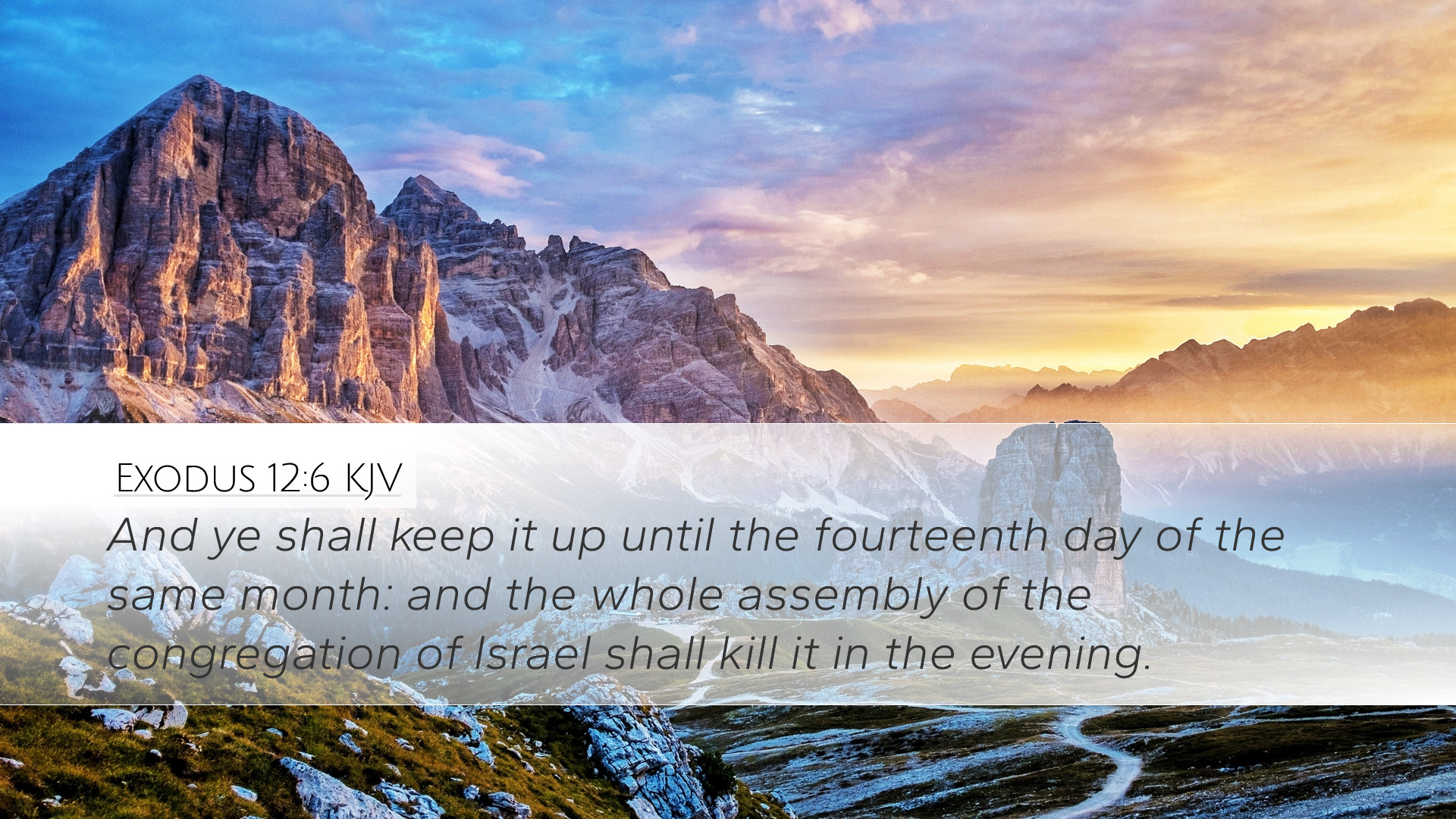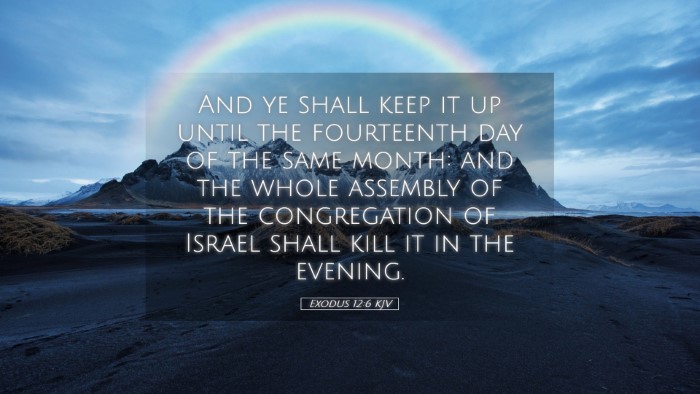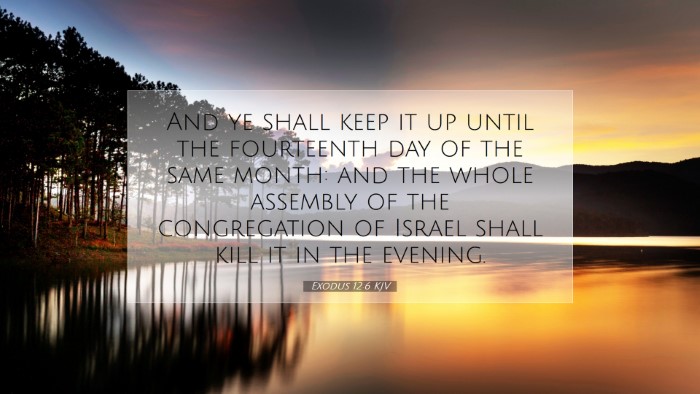Commentary on Exodus 12:6
Exodus 12:6 (ESV): “And you shall keep it until the fourteenth day of this month, when the whole assembly of the congregation of Israel shall kill their lambs at twilight.”
Introduction
Exodus 12:6 marks a pivotal moment in the narrative of the Exodus, outlining the preparation for the Passover—a foundational event in Israel's history. This commentary draws insights from Matthew Henry, Albert Barnes, Adam Clarke, and other public domain sources, unpacking the significance of this verse for pastors, theologians, and scholars.
Historical Context
The context of this verse is crucial in understanding its implications. God commands the Israelites to select a lamb on the tenth day of the month and keep it until the fourteenth day, when the lamb is to be sacrificed. This is set against the backdrop of impending judgment upon Egypt due to Pharaoh's persistent refusal to let the Israelites go.
Matthew Henry's Insights
Matthew Henry emphasizes the meticulous nature of God's instructions regarding the Passover lamb. He notes that the lamb was to be taken from the flock and kept for several days, which served to establish a personal connection between the Israelites and the lamb. This period of keeping the lamb can be seen as a time of reflection and anticipation. Henry comments on how the lamb was to be without blemish, foreshadowing the perfect sacrifice of Christ.
Albert Barnes' Observations
Albert Barnes focuses on the communal aspect of the Passover sacrifice. He highlights that “the whole assembly of the congregation of Israel” participated in this crucial moment, signifying unity among the Israelites. Barnes explains that this gathering was not just a practical necessity but a demonstration of collective faith and reliance on God's deliverance. The act of killing the lamb “at twilight” is also significant as it represents the transition from darkness to light, paralleling the spiritual journey of the people of Israel.
Adam Clarke's Commentary
Adam Clarke delves into the symbolism of the Passover lamb. He notes that the specific instructions reflect God's sovereignty and the importance of obedience. Clarke posits that this event was a precursor to the ultimate sacrifice of Jesus Christ, the Lamb of God. He underscores the importance of the lamb being without blemish, indicating that imperfection could not atone for sin; thus, it points to the necessity of a pure sacrifice for redemption.
Theological Implications
This verse invites deeper theological reflection on the themes of sacrifice, salvation, and obedience. The act of selection and the subsequent sacrifice foreshadow the coming of Christ, who would serve as the ultimate Lamb of God. Just as the Israelites were instructed to observe this rite carefully, so too are believers today called to examine and appreciate Christ's sacrifice.
- Obedience: The meticulous instructions demonstrate the importance of obedience to God's commands.
- Community: The collective action of the Israelites highlights the community aspect of faith, urging believers to remember that salvation is both personal and communal.
- Foreshadowing: The lamb symbolizes Christ's sacrifice, reinforcing the continuity of God's redemptive plan throughout Scripture.
Practical Applications
For modern-day believers, Exodus 12:6 challenges us in various ways:
- Reflection: Time spent in preparation for communion with God can deepen one’s faith, echoing the period in which the lamb was kept.
- Community Worship: Engaging in communal acts of worship fosters a sense of unity and shared faith, reminiscent of the assembly of Israel.
- Understanding Sacrifice: Embracing the significance of Christ's sacrifice can transform how believers approach their relationship with God and each other.
Conclusion
Exodus 12:6 serves as a vital component of the larger Passover narrative, rich with theological and practical significance. By embracing the insights of biblical scholars like Matthew Henry, Albert Barnes, and Adam Clarke, believers and scholars alike can deepen their understanding of God's redemptive work. The importance of the Passover lamb transcends time, offering profound lessons about obedience, community, and the ultimate sacrifice made through Jesus Christ.


